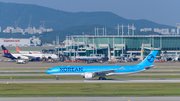Article
The future of self-service in the airline industry
Self-check-in services are helping airlines cut costs and improve customer experience.

The global economic crisis — coupled with increasing competition and rising customer expectation — has compelled the aviation industry to devise innovative and cost-saving solutions. As such, airlines all over the world are looking to technology to generate more demand and drive down costs.
Self-check-in services are helping airlines cut costs and improve the customer experience. Moreover, according to the International Air Transport Association's (IATA) "2009 Corporate Air Travel Survey," more than 50 percent of passengers worldwide want more self-service options. Customers feel more empowered while using self-check-in services, and they save time at airports. Online check-in, kiosks and mobile technology are ushering in a new era of customer self-service, while self-service kiosks are increasingly becoming more and more popular, as proven by their increased usage. Kiosks also are working well in tandem with online and mobile technologies.
According to the SITA/Air Transport World Passenger Self Service Study, kiosk check-in usage is set to rise over the years,, and interactive kiosks will increasingly shift to the forefront of self-service. Kiosks not only benefit travelers who do not check-in online but also can also be used to provide multiple functionalities at the airport — like car rental or hotel check-in. Moreover, in the near future kiosks may become excellent avenues through which ancillary services might be purchased.
Another area where kiosks will play a huge role is in the process of self-tagging baggage. IATA's Fast Travel program will immensely improve and enhance passenger self-service with kiosks performing functions such as printing bag tags, scanning documents, automating boarding gates and reporting missing baggage. Furthermore, the advent of Common Use Passenger Processing System (CUPPS) architecture — technology that enables airlines and handling agents to access their own applications from multiple shared workstations and peripherals throughout the airport — will help continue to bring about increased efficiencies and cost savings.
In addition to kiosks, mobile self-service technology will continue to take the world by storm. Mobile technology has a distinct advantage over kiosks — our mobile phone is always with us. It is thus very convenient to use one's phone for various services. Mobile phones can be used not just for checking in but also to complete the entire booking process. They also can be used for the sale of ancillary services like hotels and cars and also for timetables, notifications, alerts, social networking and much more.
According to a 2009 SITA IT trends survey, 80 percent of the airlines surveyed are planning to offer mobile check-in capabilities by 2012. What's more, IATA has targeted 100-percent barcoded boarding passes by 2010. These facts alone guarantee the future of self-service technologies at the airport.
As network access speeds become ever faster and smart phones become increasingly powerful, the future of mobile services is poised to become even more popular than kiosk and Web check-in. Now, mobile check-in users consist of business and frequent travelers and smart phone users. However, this trend is sure to change as more and more leisure travelers are also purchasing smart phones.
Kanishka Sharma is asenior business associate with NIIT Technologies, a global IT solutions provider that focuses on the transportation industry, among others. To submit a comment about this article, please e-mail the editor.










